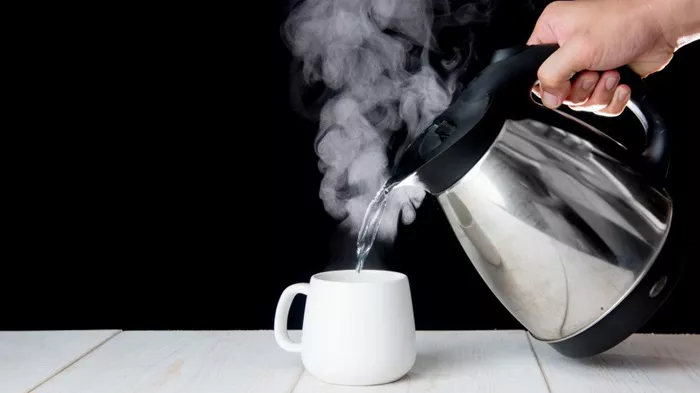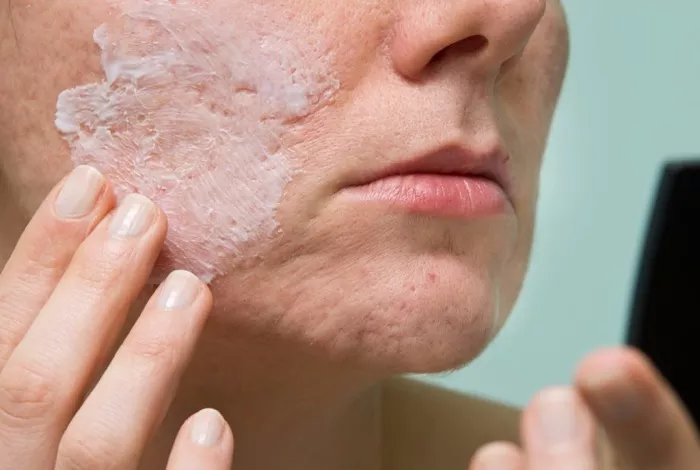Hallucinations, the perceptual experiences of things that are not present in reality, are often associated with mental health conditions that affect perception, cognition, and sensory processing. While hallucinations can manifest in various forms, such as auditory, visual, or tactile experiences, they are most commonly linked to certain mental illnesses. This article delves into the intricate relationship between mental illness and hallucinations, exploring the conditions that can cause these experiences, their underlying mechanisms, and the significance of early detection and treatment.
[inline_related_posts title=”SEE ALSO” title_align=”left” style=”list” number=”3″ align=”none” ids=”1675,1645,1461″ by=”categories” orderby=”rand” order=”DESC” hide_thumb=”no” thumb_right=”no” views=”no” date=”yes” grid_columns=”1″ post_type=”” tax=””]
Understanding Hallucinations: A Complex Phenomenon
Hallucinations are more than mere figments of imagination. They involve sensory perceptions that occur without any external stimuli. Hallucinations can affect any of the five senses, with auditory and visual hallucinations being the most prevalent. People experiencing auditory hallucinations might hear voices or sounds, while those with visual hallucinations perceive images, objects, or people that others cannot see.
1. Schizophrenia: Auditory and Visual Hallucinations
Schizophrenia is perhaps the most well-known mental illness associated with hallucinations. Individuals with schizophrenia may experience a range of symptoms, including distorted thinking, emotional imbalances, and impaired social functioning. Auditory hallucinations, particularly hearing voices, are a hallmark of this disorder. These voices can be distressing, commanding, or conversational, influencing the individual’s thoughts and behaviors. Visual hallucinations, although less common in schizophrenia compared to auditory ones, can also occur.
SEE ALSO: Schizophrenia: Complex Causes & Concerns
2. Bipolar Disorder and Hallucinations
Bipolar disorder, characterized by extreme mood swings between depressive and manic episodes, can also lead to hallucinations. During manic episodes, individuals might experience heightened sensory perceptions, leading to auditory or visual hallucinations. These experiences can exacerbate the overall intensity of manic states.
SEE ALSO: Bipolar Disorder: Symptoms & Causes & Strategies
3. Major Depressive Disorder and Psychotic Depression
While major depressive disorder is primarily characterized by persistent low mood, individuals with severe depression may experience psychotic depression, a condition marked by a combination of depressive symptoms and psychosis, including hallucinations. These hallucinations are often congruent with the individual’s depressive thoughts, making them more distressing.
4. Post-Traumatic Stress Disorder (PTSD) and Hallucinations
Post-traumatic stress disorder (PTSD), typically associated with distressing flashbacks and hypervigilance, can also involve hallucinatory experiences. Trauma survivors might experience sensory perceptions related to their traumatic experiences, such as hearing explosions or seeing disturbing images.
SEE ALSO: PTSD: Symptoms & Diagnosis & Treatment Options
5. Substance-Induced Hallucinations
Certain substances, including hallucinogenic drugs and excessive alcohol consumption, can induce hallucinations. However, these hallucinations are temporary and usually subside as the effects of the substances wear off. It’s important to distinguish between substance-induced hallucinations and those associated with mental illness.
Underlying Mechanisms of Hallucinations
The exact mechanisms behind hallucinations are complex and not fully understood. Several factors contribute to their development within the context of mental illness:
1. Neurochemical Imbalances
Disruptions in neurotransmitters, such as dopamine and serotonin, play a significant role in the occurrence of hallucinations. An excess of dopamine, for instance, is linked to auditory hallucinations in conditions like schizophrenia.
2. Brain Connectivity
Altered connectivity within the brain’s sensory processing areas can contribute to the misinterpretation of signals, resulting in sensory perceptions that are not grounded in reality.
3. Stress and Trauma
Stressful experiences and trauma can trigger changes in brain function, leading to perceptual distortions and hallucinations.
4. Neuroanatomical Abnormalities
Structural abnormalities or damage to specific brain regions can lead to disruptions in sensory processing, contributing to hallucinatory experiences.
The Significance of Early Detection
Detecting hallucinations in their early stages can have profound implications for individuals and their mental health. By addressing hallucinatory experiences promptly, several benefits can be realized:
1. Prevention of Escalation
Hallucinations, if left unattended, can escalate and become more intense or distressing over time. Early detection allows for the implementation of strategies that prevent the exacerbation of symptoms and the development of more severe mental health conditions.
2. Minimization of Distress
Hallucinatory experiences can be profoundly distressing and disruptive to an individual’s daily life. Early intervention can mitigate the distress associated with these experiences and provide individuals with tools to manage their symptoms effectively.
3. Improved Quality of Life
Addressing hallucinations early on can lead to better management of symptoms, allowing individuals to engage in daily activities, maintain relationships, and pursue their goals with greater ease.
4. Enhanced Coping Strategies
Early detection empowers individuals to develop and practice coping strategies that are tailored to their unique experiences. Learning these strategies can foster resilience and equip individuals to manage their hallucinations in healthier and more adaptive ways.
Therapeutic Approaches and Support
Therapeutic interventions are central to managing hallucinations and the underlying mental health conditions. Some effective approaches include:
1. Medication
Antipsychotic Medications: These medications are often used to manage hallucinations associated with conditions like schizophrenia. Antipsychotics work by regulating neurotransmitter imbalances in the brain, reducing the severity and frequency of hallucinatory experiences.
2. Cognitive Behavioral Therapy (CBT)
Cognitive Behavioral Therapy (CBT) is a widely recognized therapeutic approach that helps individuals identify and challenge negative thought patterns, perceptions, and behaviors. When applied to managing hallucinations, CBT aims to restructure distorted perceptions and provide individuals with tools to manage distressing experiences. Here’s how CBT can be beneficial:
Thought Monitoring: Individuals learn to identify triggers and the thought patterns associated with hallucinations. By recognizing these triggers, they can gain greater control over their responses.
Cognitive Restructuring: CBT helps individuals reframe their thoughts and perceptions related to hallucinations. They learn to question the accuracy of their interpretations and consider alternative explanations.
Coping Strategies: Through CBT, individuals develop practical coping strategies to manage distress and anxiety related to hallucinatory experiences. These strategies empower them to respond to their symptoms in healthier ways.
SEE ALSO: 4 Major Types of Psychological Therapies: Cornerstones of Psychological Healing
3. Acceptance and Commitment Therapy (ACT)
Acceptance and Commitment Therapy (ACT) is a mindfulness-based approach that encourages individuals to accept their experiences, thoughts, and emotions without judgment. It focuses on living in alignment with one’s values despite challenges. For managing hallucinations, ACT offers:
Defusion Techniques: ACT teaches individuals to defuse from distressing thoughts by observing them from a detached perspective. This reduces the emotional impact of hallucinatory experiences.
Mindfulness Practices: Mindfulness techniques help individuals observe their thoughts, emotions, and sensations in the present moment. This practice can reduce the distress associated with hallucinations and enhance emotional regulation.
Values and Commitment: ACT encourages individuals to clarify their values and set meaningful goals. By committing to actions that align with their values, individuals can lead fulfilling lives despite the presence of hallucinations.
4. Support Groups: Sharing Experiences and Building Connections
Support groups provide a valuable platform for individuals experiencing hallucinations to connect with others who share similar experiences. These groups offer a safe and empathetic space where participants can:
Share Experiences: Individuals can share their stories, challenges, and strategies for managing hallucinations. This sense of shared understanding reduces isolation and stigma.
Learn Coping Strategies: Support groups often involve discussions about effective coping strategies that participants have found helpful. Learning from others can provide new insights and tools.
Receive Emotional Support: Support groups offer emotional validation, encouragement, and a sense of belonging. Individuals can feel understood and supported by their peers.
5. Holistic Approaches
Holistic approaches encompass a range of practices that contribute to overall well-being and mental health. While they may not directly address hallucinations, they can improve an individual’s ability to cope with their experiences. Some holistic approaches include:
Physical Activity: Engaging in regular exercise has been linked to improved mood, reduced stress, and enhanced cognitive function. Physical activity can indirectly impact the frequency and intensity of hallucinations.
Nutrition: A balanced diet rich in nutrients supports brain health and overall well-being. Certain nutrients, such as omega-3 fatty acids and antioxidants, have been associated with improved mental health.
Mind-Body Practices: Practices like yoga, tai chi, and meditation promote relaxation, emotional regulation, and stress reduction. These practices can complement other therapeutic approaches.
6. Family and Social Support: Building a Strong Network
The support of family members, friends, and loved ones is invaluable for individuals managing hallucinations. Building a strong network involves:
Open Communication: Encouraging open conversations about hallucinations fosters understanding and reduces stigma. Loved ones can learn about the experiences and needs of the individual.
Emotional Validation: Offering emotional validation and empathy helps individuals feel supported and accepted, reducing feelings of isolation.
Assistance with Treatment: Family members can play a role in ensuring that the individual follows treatment plans, attends therapy sessions, and takes medications as prescribed.
Conclusion
Hallucinations are a complex and multifaceted aspect of certain mental illnesses. While they can be distressing and disruptive, early detection and appropriate treatment can significantly improve outcomes for individuals experiencing hallucinations. Through a combination of medication, therapy, support, and psychoeducation, individuals can learn to manage their symptoms, enhance their coping strategies, and regain control over their lives. It’s essential to approach hallucinations with empathy, understanding, and a commitment to providing comprehensive mental health care.
[inline_related_posts title=”Related Topics” title_align=”left” style=”list” number=”3″ align=”none” ids=”1648,1616,1613″ by=”categories” orderby=”rand” order=”DESC” hide_thumb=”no” thumb_right=”no” views=”no” date=”yes” grid_columns=”1″ post_type=”” tax=””]
































